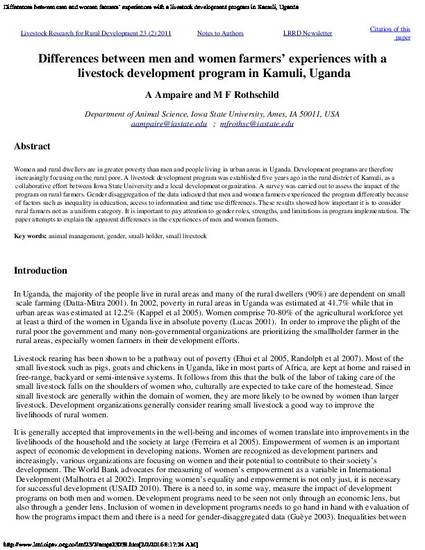
Women and rural dwellers are in greater poverty than men and people living in urban areas in Uganda. Development programs are therefore increasingly focusing on the rural poor. A livestock development program was established five years ago in the rural district of Kamuli, as a collaborative effort between Iowa State University and a local development organization. A survey was carried out to assess the impact of the program on rural farmers. Gender disaggregation of the data indicated that men and women farmers experienced the program differently because of factors such as inequality in education, access to information and time use differences. These results showed how important it is to consider rural farmers not as a uniform category. It is important to pay attention to gender roles, strengths, and limitations in program implementation. The paper attempts to explain the apparent differences in the experiences of men and women farmers.
Available at: http://works.bepress.com/max-rothschild/38/

This is an article from Livestock Research for Rural Development 23 (2011): 1. Posted with permission.